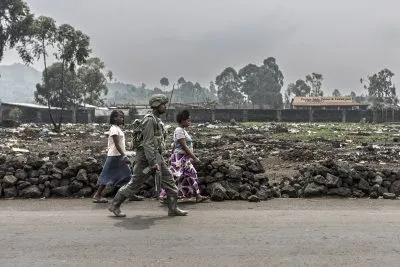Lining up in their millions in scenes that are always liable to stir the emotions, the people of South Africa rendered a stunning judgment on the performance of the party that has led them since the dawn of freedom.
The ANC is set to surrender the parliamentary majority it has enjoyed for thirty years. With almost all votes counted the party has won just 40%, a major slump in support that means it will almost certainly have to find a coalition partner.
The ANC cannot say it wasn’t warned. For years under successive leaders, the party has proved unequal to the enormous challenges of a society deeply scarred by centuries of colonialism and apartheid.
The results of this failure are wearyingly familiar to South Africans across the political and racial divides. Inadequate growth, mass unemployment and systematic power cuts have been the defining features of recent years.
The brief optimism of Cyril Ramaphosa’s election, which many hoped would turn the page on an era of state corruption and kickstart the economy, proved a mirage. Ramaphosa has been a crushing disappointment, tentative in battling vested interests, unimaginative on the economy, and baffling in his foreign policy alignment with a Russia that offers South Africa nothing.
Even his popular international activism on Israel-Palestine, a flurry of opportunistic policies in the days before the poll – and his hijacking of an ‘address to the nation’ for nakedly party political reasons – failed to move the dial.
Investor scepticism
For many poll watchers, it was a matter of when, not if, the losing party lost its majority.
But although investors have long been sceptical of the ANC’s offering ( the challenges in attracting investment were highlighted recently when BHP offered to buy mining giant Anglo American – minus its South African assets) the ANC’s decline is not necessarily good news for investors. Most troublingly, one of the main beneficiaries of the ANC’s collapse has been Jacob Zuma’s MK Party, whose insurgent campaign found a fertile base in Zuma’s home region of Kwa-Zulu Natal. Needless to say, any coalition involving the disgraced former President would not be the new broom that South Africa requires. The other options – deals with the left-wing Economic Freedom Fighters or a coalition of smaller parties – may prove equally unpalatable. Probably only a deal with the right-leaning Democratic Alliance would be agreeable to investors, but there are major obstacles to a workable coalition between two parties with diverging ideologies and interests.
Whatever the outcome, investors would do well to remember the green shoots of opportunity in this extraordinary country. Independent power production, particularly in renewables, has finally begun to take off. In some regions, local government is starting to offer effective solutions in the vacuum of national leadership. It’s still one of the primary places to do business on the continent. But it will take a serious coalition to unlock the opportunities – or an ANC prepared to finally wake up and deliver after this seismic shock.
Want to continue reading? Subscribe today.
You've read all your free articles for this month! Subscribe now to enjoy full access to our content.
Digital Monthly
£8.00 / month
Receive full unlimited access to our articles, opinions, podcasts and more.
Digital Yearly
£70.00 / year
Our best value offer - save £26 and gain access to all of our digital content for an entire year!


 Sign in with Google
Sign in with Google 






